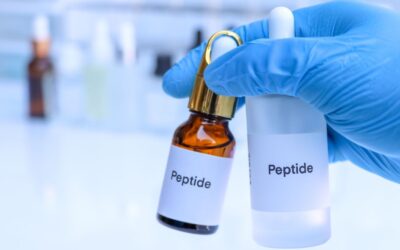What are generic medicines?
How are they different from the popular brand name ones?
By: Su Keles | Posted on August 15, 2022
What are generic medicines?
The use of generic medicines has been increasing in the last few years, mainly as a low-cost option in healthcare supplies. So, what are generic medicines? The generic version of a drug is created with the purpose of having the same effects as an already-existing brand-name drug. More precisely, a generic drug version must contain the same active ingredients and meet the same quality and safety requirements as the brand-name drug.
Here is how the process unfolds; when a pharmaceutical company discovers a new drug, they have the right to apply for patency to prevent other companies from creating and selling the same drug. This patency can last for decades, in which the company produces and sells the drug under its brand name to turn its investments into a profit. However, when the patency expires, other companies have the right to produce a similar drug. Other companies can use the generic name or create their brand name.
Let’s look at this example: Semaglutide is a prescription medication used for the treatment of patients with treat Type 2 Diabetes and weight management. Semaglutide is the API, the active ingredient, but some expedients will also be added to make the drug more appealing to the patients (click here to learn more about API). This medication is sold under various brand names, such as Ozempic or Wegovy. Now, the patent for the drug Semaglutide is still active, but when it expires, it will allow other companies to produce generic versions of the drug.
Differences between brand name and generic drugs
- Why does it look different?
Even though they must have the same active ingredients for the same medicinal effects, trade laws do not allow generic drugs to look like brand-name drugs. So, generic drug producers must make changes regarding the inactive ingredients (excipients), such as the dyes and fillers, which lead to changes in the shape and color of the medicine. However, this can consequently create problems such as harming a patient’s acceptance of treatment or increasing the difficulty of recognizing the medication both for patients and doctors. - Why is it cheaper?
A generic drug’s price can be up to 80 percent less than its brand name origin. The main explanation for the low prices is that generic drug producers do not have to spend the same amount of money as the brand name company. Generally, the cost of a new drug will include the cost of research, patency, development, and marketing. But none of these costs is necessary for generic drugs. Also, once a generic medication is approved, several companies can produce and sell the drug. This competition helps to lower prices as well.
The quality issue – Is skepticism necessary?
- Many people are worried about the quality of generic drugs. Study shows people have improved opinions of generic medicines, but the lack of trust is still there, mainly for patients who strongly believe that lower price equals lower quality. Both EU and US laws allow for a shortened process for administering generic medicines. However, the process might take less time and money if you look at how generic and brand-name drugs are made, but the differences are considered minor. There is no need to conduct clinical studies, but bioequivalence to the initial medicine must be proved. Bioequivalence will determine if the generic drug works in the body similarly and be as safe and efficient as the brand-name drug.
- It is true that in some cases, even though the active ingredient in a generic medication is the same as in the brand name alternative, small changes could determine how the generic medication affects your body. These minor changes can be related to how the generic drug is produced or the different inactive ingredients used in the medicine. It may cause the drug to be less effective or create side effects for some patients
- There is plenty of research proving that taking the generic drug costs less and provides a solution that is just as effective as the original. But these are a few isolated cases. For the most part, generic medications seem to be just as good at treating patients as their brand-name alternatives. It is also good to remember that brand-name companies make a lot of generic drugs. In most cases, they make copies of their own medications or another company’s brand-name drugs and then sell them without the brand name.
Even though they must have the same active ingredients for the same medicinal effects, trade laws do not allow generic drugs to look like brand-name drugs. So, generic drug producers must make changes regarding the inactive ingredients (excipients), such as the dyes and fillers, which lead to changes in the shape and color of the medicine. However, this can consequently create problems such as harming a patient’s acceptance of treatment or increasing the difficulty of recognizing the medication both for patients and doctors.
FAQ
What are Generic Medicines?
Generic medicines are drug formulations created to offer the same therapeutic benefits as existing brand-name medications. They contain the same active pharmaceutical ingredients (API) and adhere to identical quality and safety regulations as their branded counterparts.
How Do Generic Medicines Differ from Brand-Name Drugs?
While the active ingredients in generic and brand-name drugs must be the same, trade laws prohibit generic drugs from resembling branded versions in appearance. This includes variations in shape, color, and inactive ingredients, also known as excipients.
Why are Generic Medicines Cheaper?
The cost of a generic drug can be up to 80% less than its branded version. The primary reason for this price disparity is that generic manufacturers do not bear the initial costs of research, development, and marketing, which are associated with brand-name drugs.
Are Generic Medicines of Lower Quality?
Despite some public skepticism, generic medicines are subjected to rigorous quality control checks. They need to prove bioequivalence, meaning they must function in the body similarly to the brand-name drug, before receiving approval.







Check out all other blogs here!